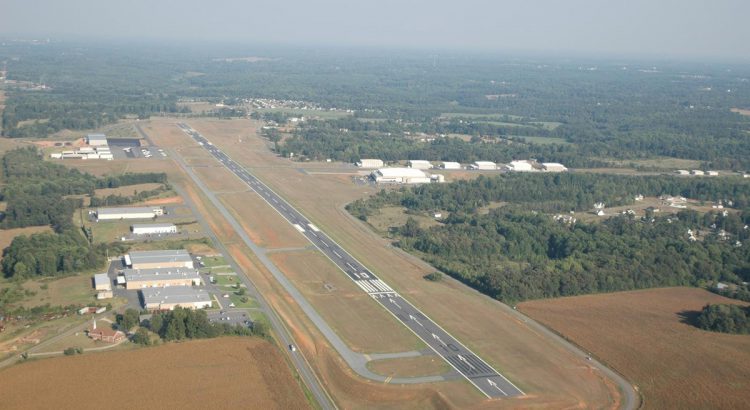North Carolina’s 72 publicly owned airports contribute more than $72 billion to the state’s economy each year – 11% of the state’s gross domestic product, or total economic output – and support nearly 333,000 jobs, according to a report released by the N.C. Department of Transportation’s Division of Aviation.
Airports and aviation-related jobs also provide nearly $23 billion in personal income and contribute $3.7 billion in state and local tax revenues every year, based on 2021 data provided by the airports and Federal Aviation Administration.
The report, North Carolina: The State of Aviation, highlights the economic impacts of the state’s public airports and related aviation and aerospace assets that support North Carolina’s aviation economy. NCDOT creates the report every two years to help guide future investment in aviation infrastructure and provide a tool for recruiting aviation and aerospace industry companies and investment.
“North Carolina’s aviation system continues driving the economy by connecting people, companies and communities to markets and destinations worldwide,” said Bobby Walston, director of NCDOT’s Division of Aviation.
Passenger service at North Carolina’s commercial service airports bounced back in 2021 to 56.9 million, 80% of the state’s banner traffic count in pre-pandemic 2019. More cargo flowed through North Carolina airports in 2021 than ever before — 1.3 million tons, up 22% from 2019 — driven by a major increase in durable good and online purchases by homebound consumers.
North Carolina’s public airport system boasts 10 commercial service airports, which offer regularly scheduled passenger service, and 62 general aviation airports. All of the state’s airports connect local businesses and communities to global markets, house and refuel private aircraft, support military and agricultural aviation and statewide emergency response, and provide aviation services such as aerial photography and pilot training.
All airports generate significant economic return for their communities and the state. For instance, North Carolina’s public airports lease space to more than 4,000 private aircraft that generate more than $5.6 million in property tax revenues for their communities each year.
The report contains data compiled and analyzed for NCDOT by North Carolina State University’s Institute for Transportation Research and Education. Impacts are calculated based on factors such as jobs supported by the airports and the businesses that rely on them, business and leisure travelers, and airport capital projects and operations.
View the full report, including the breakdown of each individual airport’s contributions, at www.ncdot.gov/aviation.




